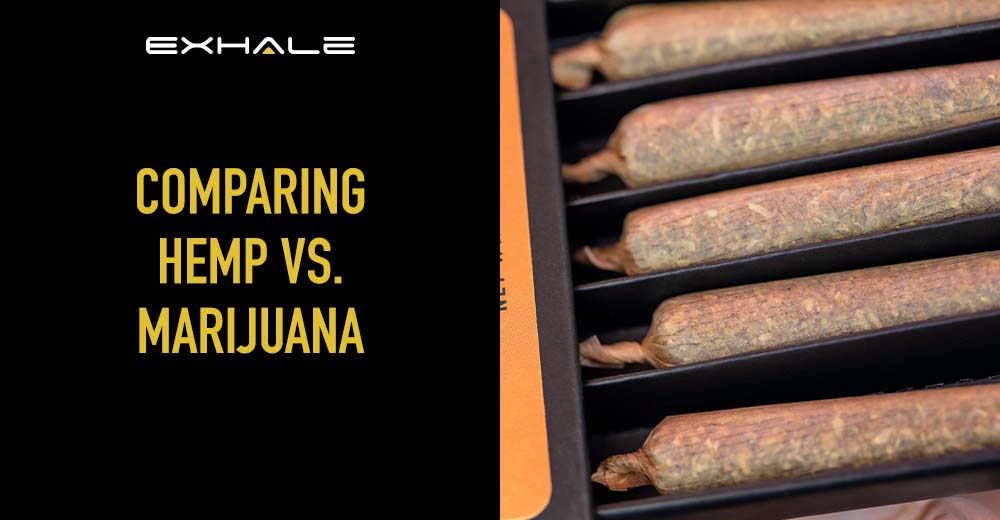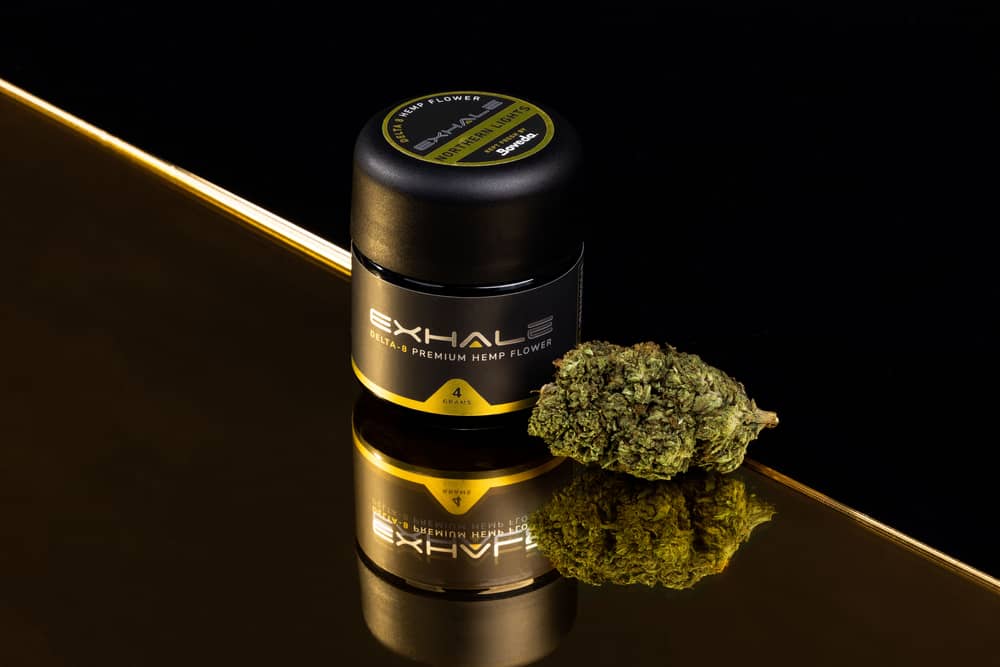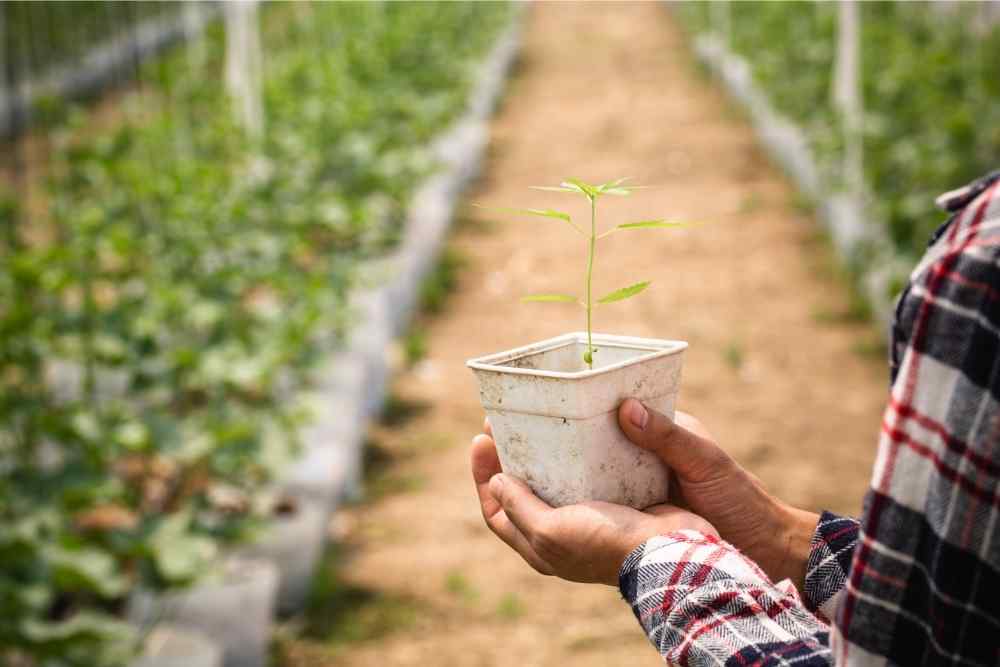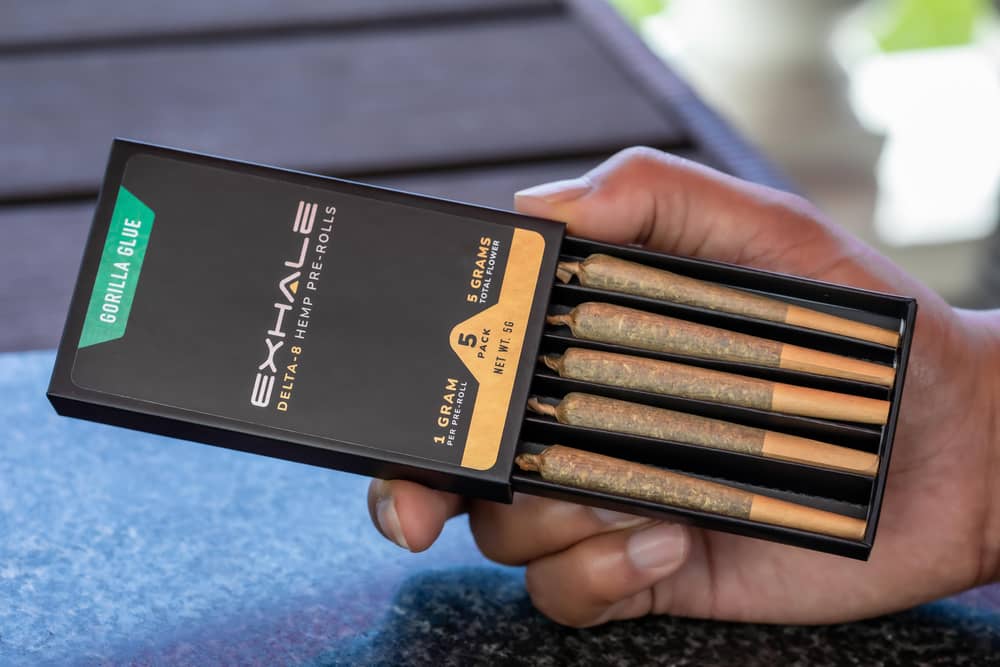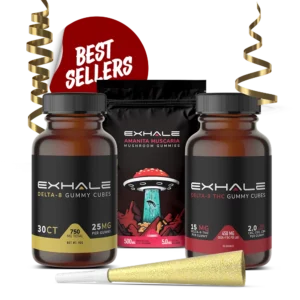Cannabis plants can be broken down into two broad categories: hemp and marijuana. If you don’t yet know the differences between hemp vs marijuana, you are in good company. People confuse these two terms because of the complicated scientific, agricultural, and legal history of cannabis. Let’s see if we can’t clear things up for you.
People frequently describe hemp and marijuana as two different cannabis species, but this is not technically the truth. “Hemp” and “marijuana” are broad terms people use to categorize cannabis plants based on their Delta 9 THC content. Delta 9 THC is the compound in cannabis that gets you “high.” Generally speaking, marijuana has a lot of Delta 9 THC, while hemp has very little.
The properties, uses, and legality of hemp vs marijuana vary dramatically. It’s important to know the differences between the two to get the cannabis products you need safely and legally. Read on to demystify these terms and discover how versatile cannabis plants are.
What is Hemp?
“Hemp” refers to cannabis that contains a very small amount of Delta 9 THC. Federal law in the United States specifies that a cannabis plant must have 0.3% Delta 9 THC or less to be classified as hemp. In such low concentrations, the effects of Delta 9 THC are usually too minimal to be felt.
Hemp has a long and storied history dating back thousands of years. Many historians believe hemp was one of the first plants humans ever cultivated, and it is easy to see why. Hemp is a resilient crop that grows quickly in almost any environment, and it has countless practical applications.
Hemp produces some of the strongest fibers in the natural world. It is used by people in many industries, including fashion, construction, food, and energy. Hemp also produces cannabidiol (CBD), a cannabinoid with multiple therapeutic uses that we will explore later in this article.
What is Marijuana?
The term “marijuana” indicates a cannabis plant with Delta 9 THC concentrations above 0.3%. Due to its higher Delta 9 THC content, marijuana brings a euphoric sensation that makes it popular for recreational and therapeutic purposes.
Although they may have the same industrial potential as hemp, marijuana plants tend to be grown exclusively for human consumption. Marijuana flower is typically smoked on its own, but you can also consume it as an edible, tincture, or vapor.
Both hemp and marijuana contain CBD, but marijuana plants do not have nearly as much CBD as hemp plants do. You are far more likely to find CBD derived from hemp plants because they give a higher yield. Furthermore, hemp is federally legal in the United States, whereas marijuana remains a controlled substance. We will discuss the legal aspects of hemp vs marijuana later in this article.
Why Are Hemp and Marijuana Often Confused With One Another?
Hemp and marijuana are easily confused with one another because they are fundamentally the same plant. At a glance, they are almost indistinguishable. A common misconception is that hemp and marijuana are separate species within the cannabis family, but the reality is more complex.
The cannabis genus has three distinct subspecies:
- Cannabis Sativa: Cannabis Sativa is a tall plant (up to 20 feet in height!) native to the hot tropical climate of East Asia. These plants need lots of bright light for their outstretched leaves. Sativas have an energizing effect.
- Cannabis Indica: Cannabis Indica is native to the mountains of South Asia, where it became accustomed to cooler, high-altitude conditions. In terms of appearance, they are the opposite of Sativa — short and dense. Indicas are known for their deeply relaxing effect.
- Cannabis Ruderalis: Ruderalis plants are native to Eastern Europe. They are short, with few branches, and reach maturity much faster than other cannabis plants. Despite this, people rarely choose to cultivate Ruderalis because it has low levels of cannabinoids. You are more likely to find Ruderalis growing wild by the side of a Russian road than on a farm or in a greenhouse.
Which one of these species is hemp, and which one is marijuana? It’s not so simple. Remember that hemp and marijuana are not scientific terms, and they do not refer to different subspecies of cannabis. A plant from any of the three cannabis species listed above could be classified as either hemp or marijuana. The specification of hemp vs marijuana all depends on the individual plant’s Delta 9 THC content.
Hemp vs Marijuana: What Are the Key Differences?
Since they belong to the same species, the difference of hemp vs marijuana comes down to a single factor: their Delta 9 THC content. Differences in Delta 9 THC levels have to do with the chemical composition of the cannabis plant and how it was cultivated. Aside from their cannabinoid content, hemp and marijuana are differentiated by their uses and legality.
Chemical Composition
The comparison of hemp vs marijuana comes down to chemical composition. Both hemp and marijuana naturally contain some amount of CBD and Delta 9 THC, as well as dozens of other cannabinoids. As previously mentioned, cannabis plants with less than 0.3% Delta 9 THC are classified as hemp, and those with more Delta 9 THC are labeled as marijuana.
Legality
Hemp and hemp-derived CBD products are federally legal in the United States under the 2018 Farm Bill, which also established to 0.3% limit on Delta 9 THC. Before the Farm Bill was passed, there was no strict cutoff point between hemp and marijuana.
Marijuana remains illegal at the federal level. It is classified as a schedule 1 drug under the Controlled Substances Act of 1970. However, some states have passed laws allowing recreational marijuana use, and many more have legalized it for medicinal use. You should check on its legal status in your state before purchasing any cannabis products.
Cultivation
Hemp and marijuana are cultivated for very different purposes, so it is only natural for them to require different conditions for growth.
- Marijuana Cultivation: Marijuana farmers prioritize high Delta 9 THC content, as this makes for more potent marijuana strains. These days, farmers can produce marijuana with Delta 9 THC levels as high as 30%. To do so, they selectively breed their plants in a controlled environment (typically indoors) to produce female flowering plants with a high yield.
- Hemp Cultivation: Hemp is grown under different circumstances depending on its intended use. Industrial hemp is grown to maximize its size, with little attention given to its flower. Therefore, it can be grown in dense fields regardless of the climate. On the other hand, hemp cultivated for CBD is grown in more controlled circumstances to maximize the quality of its flower.
Usage
Marijuana is used for therapeutic benefits and recreational purposes. The Delta 9 THC it contains binds to receptors in the endocannabinoid system (ECS) to create the euphoric sensation commonly known as getting “high.” Marijuana can be smoked, vaporized, or eaten to achieve the desired effects.
Hemp is an incredibly versatile plant. People also use it for its therapeutic benefits, but that is only the tip of the iceberg. The many uses for hemp include:
Textiles
Historical evidence suggests that humans have been using hemp for thousands of years to make durable rope and fabrics. It was especially popular during the age of sailing since people could use hemp to make strong ropes and sails for boats. The British navy valued hemp so much that, in the 1600s, the Virginia Assembly mandated that every farmer in Virginia devote a portion of their land to growing hemp for the government’s use. After the government placed legal restrictions on cannabis, many manufacturers turned to synthetic fabrics to approximate the qualities of hemp. Unfortunately, synthetic fiber is made with chemicals and microplastics that damage the environment.
Paper
For centuries, most paper came from hemp, but in the 1900s, legal restrictions on cannabis caused wood pulp to take over the paper industry. Countless acres of forest land were destroyed as a result. However, there has been a recent resurgence in hemp paper, driven by several factors. Hemp has a larger and much faster yield than trees while taking up far less space, so it is more environmentally friendly to produce.
Construction
People have used hemp in buildings since ancient times, but just like what happened with the paper and textile industries, legal restrictions put in place during the mid-1900s forced construction workers to abandon hemp. Today, there is a resurgence in the popularity of hemp for construction. People can make hemp into insulation, varnishes, bricks, and even hemp concrete!
Bioplastic
There is a reason plastic shows up in so many everyday products. Plastics are strong, lightweight, and durable, but so is hemp! We all know the dangers that plastic poses to the environment, but bioplastics made from hemp could be the ideal solution to this global problem.
Hemp Seeds
Hemp seeds are a superfood because they are rich in vital proteins, fibers, vitamins, and minerals. Furthermore, hemp seeds contain essential Omega 3, 6, and 9 fatty acids. You can consume hemp seeds on their own or cold-pressed to make hemp oil. You can add hemp oil to just about any dish you can dream of.
CBD Products
CBD is a natural compound in cannabis plants that has an array of therapeutic uses. It can improve sleep, soothe aches and physical tension, and boost your mood. You can find hemp-derived CBD oil in various products, including tinctures, edibles, salves, and cosmetics.
Delta 8 THC
We have spoken at length about Delta 9 THC in this article, but there is another kind of THC in cannabis plants. Let’s take a closer look at Delta 8!
What is Hemp-Derived Delta 8 THC?
Delta 8 THC is a cannabinoid in cannabis plants. It is less potent than Delta 9 THC, but it still brings a sense of euphoria, relaxation, and relief. Delta 8 THC comes from CBD isolate from hemp plants, not from marijuana, which means it is legal according to the 2018 Farm Bill.
However, individual states still have the power to issue their own restrictions on Delta 8. There are 11 states that Exhale Wellness does not ship Delta 8 to, which you can find on our website.
Benefits of Delta 8 THC
Delta 8 THC offers benefits for your pleasure and overall wellbeing. Let’s take a look at what Delta 8 can do for you!
- Uplifts: Delta 8 THC sends uplifting, blissful sensations throughout your body. The euphoria exists halfway between Delta 9 and CBD. Not too strong, but not too mild either. Like Baby Bear’s porridge, Delta 8 is just right.
- Relaxes: The soothing power of Delta 8 can calm your mind and body at once. If you’re coming off a long and tiring day and looking for relief, Delta 8 is the perfect way to chill out and wind down.
- Soothes: If you find yourself plagued by aches, irritation, and physical discomfort, you should consider trying Delta 8. It works as a natural remedy for the general wear and tear of life. For the fastest relief, smoke some Delta 8 flower or use a vape. When you inhale Delta 8, it passes the blood-brain barrier in a matter of seconds.
- Is Milder than Delta 9: Delta 8 is less potent than marijuana-derived Delta 9 THC. This means you get a more mellow sense of euphoria without the negative side effects people associate with Delta 9. Say goodbye to feelings of paranoia, couch lock, and brain fog!
Side Effects of Delta 8
Delta 8 THC can cause drowsiness, especially in larger doses. Of course, this is a benefit for those who can’t stop tossing and turning at night! Delta 8’s blissful effect can be distracting, so you should not drive or operate heavy machinery after taking Delta 8.
How to Take Delta 8
Delta 8 THC is almost as versatile as the hemp plant itself. You can take it in a variety of forms depending on your personal tastes and desired effects.
Flower
Delta 8 flower begins as plain CBD flower (hemp flower). After the buds are cured and trimmed to perfection, they receive a coating of Delta 8 THC concentrate. Delta 8 flower looks, smells, and tastes just like plain hemp flower, but it comes with that added Delta kick. You can smoke Delta 8 flower just like marijuana, in a joint, pipe, or bong. If you find smoke to be too harsh, you can also use a vaporizer designed for dry flower.
Pre-Rolls and Cigarettes
Spare yourself the effort and messiness of rolling your own joints by sampling our Delta 8 pre-rolls and cigarettes. Each pack of pre-rolls contains five 1-gram joints, expertly rolled with no air pockets to disrupt your experience. If you are conscious about the appearance of a joint, we’ve got your back. Delta 8 cigarettes are a more discreet delivery method. Each pack comes with eight 80-mg cigarettes, ready to smoke on opening. Don’t let the name confuse you. Our Delta 8 “cigarettes” contain no tobacco or nicotine whatsoever — just pure Delta 8 hemp flower.
Vape Pens
Vape pens consist of two elements: a battery and a cartridge. The cartridges are interchangeable and fit any standard 510-threaded vape battery. Vape carts are filled with Delta 8 extract for a smooth and potent experience. Delta 8 cartridges come in an array of strains with unique effects and flavor profiles. You may recognize many popular strains like OG Kush, Sour Diesel, and Pineapple Express.
Edibles
If smoke or vapor isn’t your thing, try some Delta 8 edibles. These fruity gummies are a delicious treat, and they are 100% vegan to boot! Each gummy has a precise dose of Delta 8, making it exceptionally easy to control how much you take.
Concentrates
Concentrated Delta 8 is available as shatter or crumble. The names of these products perfectly describe their respective textures. If you have ever tried dabbing CBD or Delta 9 wax, you are already familiar with how potent concentrates can be. We advise beginners to start slow and take small hits.
Final Thoughts – Hemp vs Marijuana
It is easy to get the terms “hemp” and “marijuana” confused. After all, they are basically the same plant! Hemp and marijuana are not plant species. Rather, they are broad terms people use to classify cannabis based on its effects.
Ultimately, the difference between a hemp plant vs a marijuana plant comes down to their legal definition. We have been over this a few times now, but bear with us as we reiterate: hemp is a cannabis plant with less than 0.3% Delta 9 THC. Cannabis plants with Delta 9 THC levels above 0.3% are marijuana.
The wide array of uses for both hemp and marijuana shows how versatile the cannabis plant is. From construction to cosmetics, from self-care to kickbacks, cannabis has you covered!
